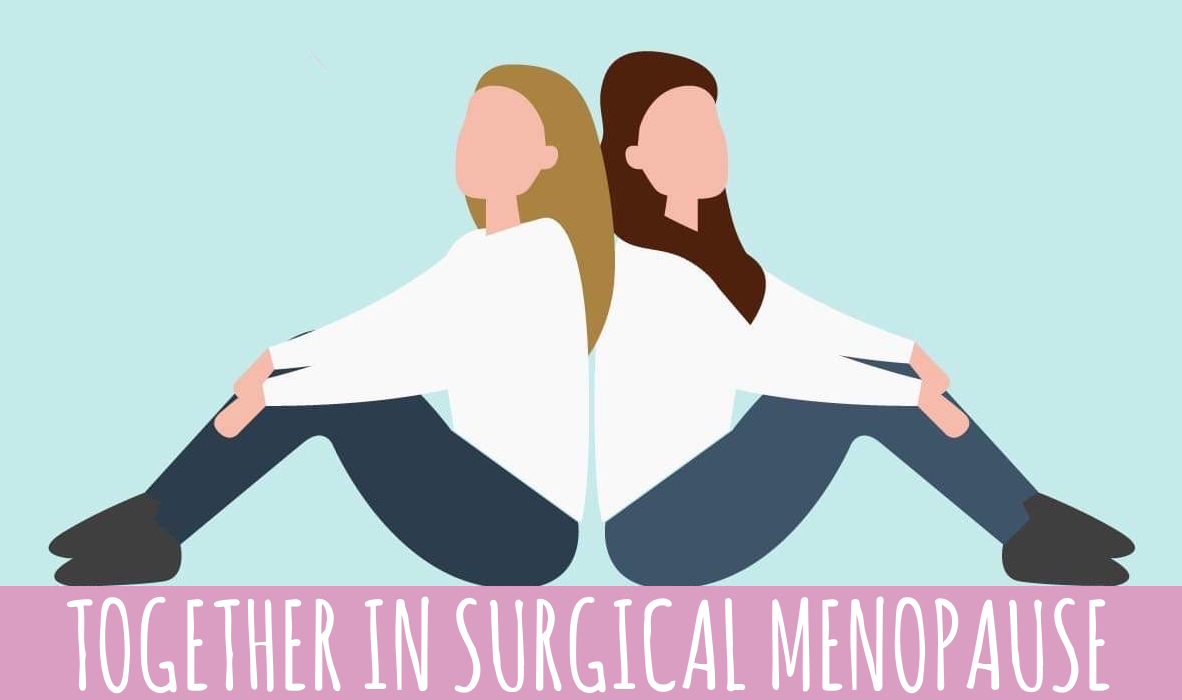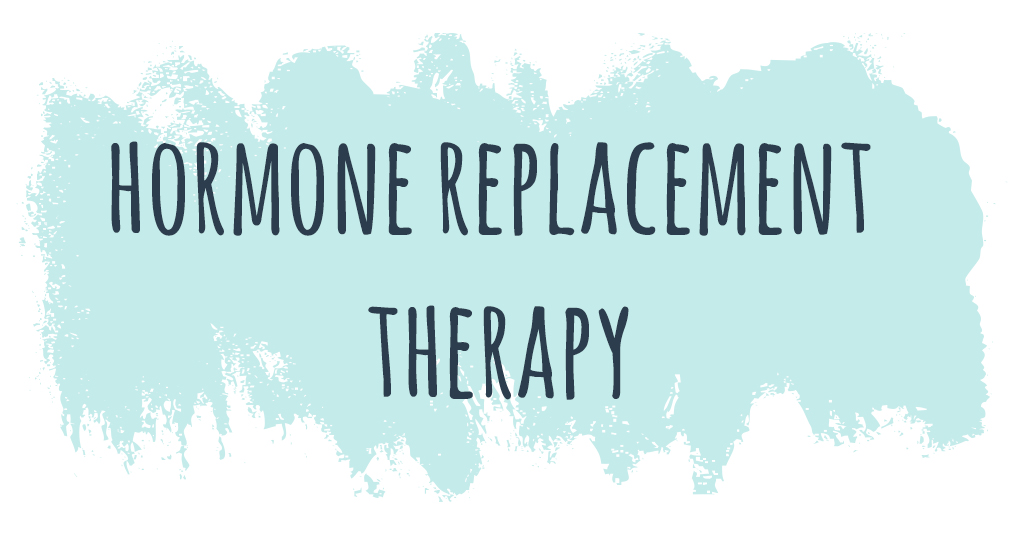


Bilateral oophorectomy (removal of the ovaries) induces surgical premature menopause.
Surgical menopause is a permanent state and is an acute deficiency of the hormones normally produced by the ovaries.
Without replacing these hormones, most women are likely to develop severe symptoms of oestrogen deficiency and can also develop female androgen deficiency. Consequently, they are at increased risk of developing conditions such as osteoporosis, cardiovascular disease and cognitive decline.
Hormone replacement therapy (HRT) is the most effective treatment for menopause.
The decision to take HRT is a personal choice, yet many women are often not provided with factual, up to date evidence based information that outlines the benefits and risks of taking HRT, thus not giving them the opportunity to make an informed choice.
Unfortunately, many women who are struggling with menopausal symptoms are too frightened to take HRT. This is largely due to the Women’s Health Initiative Study in 2002 which boldly stated that HRT gives you breast cancer, the resulting headlines understandably spread fear and caused many women to throw their HRT away.
The study has since been criticised for failing to meet research study criteria and new research shows that taking oestrogen-only HRT following surgical menopause in fact reduces the risk of heart disease, bowel cancer, fractures, breast cancer, strokes and improves bone health.
For women who have had cancer, HRT is often dismissed as an option entirely but this should be assessed on a case by case basis.
Anyone with a history of cancer should seek specialist advice from their oncologist and a menopause specialist to create an individual plan that takes account of quality of life factors.
Our interviews with Dr Hannah Short and Diane Danzebrink offer helpful advice and suggestions regarding cancer and menopause. It is important to inform yourself with the facts and be your own advocate.
Types of HRT
Before we explore oestrogen replacement, it is important to note that you will only need progesterone replacement if you no longer have your ovaries but still have your womb.
However, in some cases, you may also need progesterone for a short time following removal of your womb if you had a severe case of endometriosis before your hysterectomy.
Oestrogen replacement
Oestrogen replacement is available in the form of tablets, transdermal patches, gels and sprays. For some women in surgical menopause with complex issues, oestrogen hormone implants are available; however, these are a fourth line treatment and can only be given under the care of a consultant gynaecologist with special interest in menopause.
Benefits
Taking oestrogen replacement will not only help to manage your menopausal symptoms, it will also protect your long-term health and reduce your risk of developing osteoporosis and heart disease.
After a few months of taking oestrogen many women will find their menopausal symptoms have improved.
Your joints and bones may ache a little less, your sleep may be improved, your psychological symptoms such as low mood and irritability may be better.
It is important to remember that younger women are highly likely to need a higher dose of HRT than that of a woman in natural menopause and finding your “normal” range can take a lot of time and adjustments to your HRT regime.
Side effects
It is not uncommon to experience some side-effects when you first start taking HRT. Common side effects include nausea and breast tenderness/pain, but these usually settle down within the first few weeks.
If side effects persist, you may need to change the form of HRT that you take, for example change from patches to gels.
Blood tests
Blood tests are not always necessary. However, there is certainly a place for these in terms of checking your serum oestradiol levels alongside your symptoms, particularly in women who are still having symptoms after months of higher doses of HRT. They can also check that you are actually absorbing transdermal HRT.
For women with a history of PMDD and/or acute sensitivity to hormonal fluctuations, it is important to find a HRT regime that offers consistency – again, blood tests to keep track of your normal range can help with this.
Testosterone replacement
Women in surgical menopause may experience rapid and significant androgen deficiency symptoms. A lack of testosterone may result in low libido, depleted energy levels, increased tiredness, difficulty concentrating, low mood or headaches.
You can read more about testosterone, how to get it prescribed, the benefits and side effects in our info sheet.
Local Oestrogen
Many women in surgical menopause will find that systemic HRT alone is not enough to help with symptoms of vaginal dryness.
Symptoms of vaginal dryness include: soreness, itchiness, dryness, bleeding, painful sex, multiple night time toilet trips, stress urinary incontinence, UTIs and any other vaginal, bladder and pelvic floor symptoms.
To help relieve and manage symptoms of vaginal dryness we would advise you to speak with your GP about using local oestrogen which comes in the form of creams, pessaries or a vaginal ring.
Read our interview with Jane Lewis for more about vaginal dryness and local oestrogen.
Recommendations
Click here to discover our recommended reads and resources